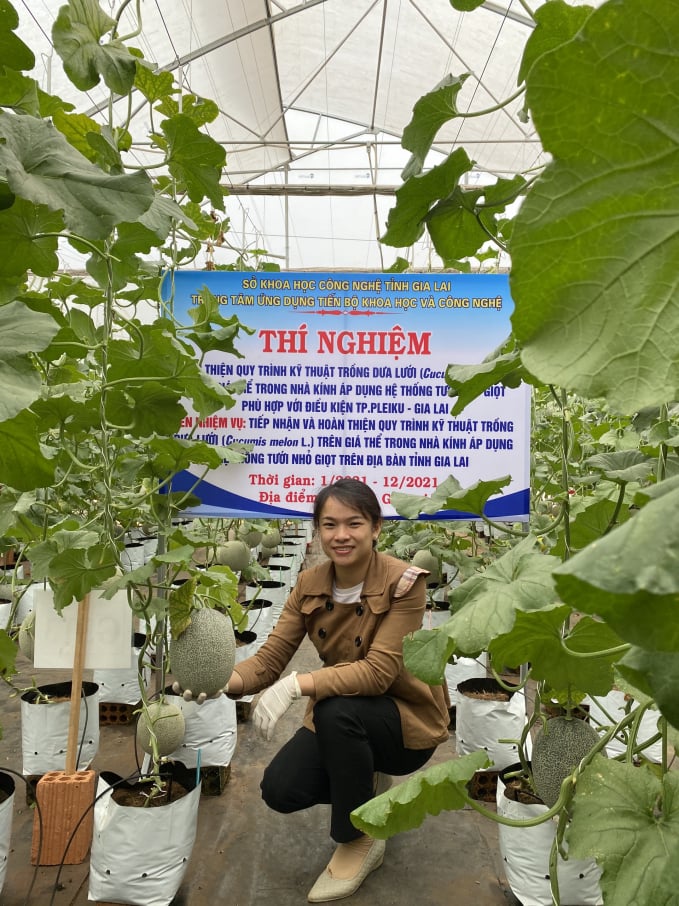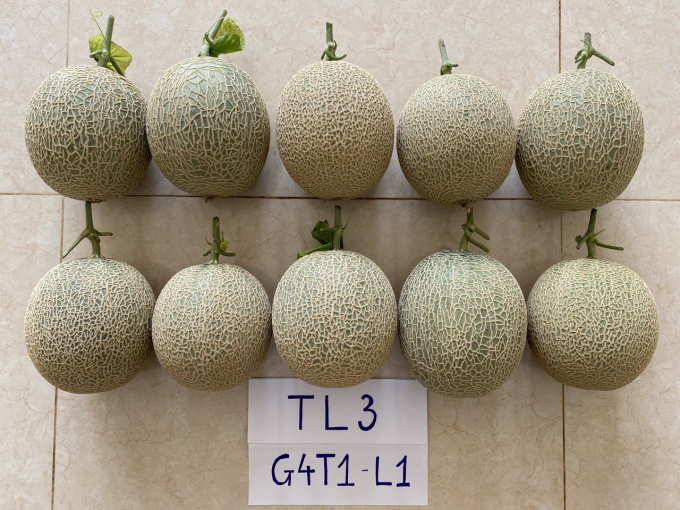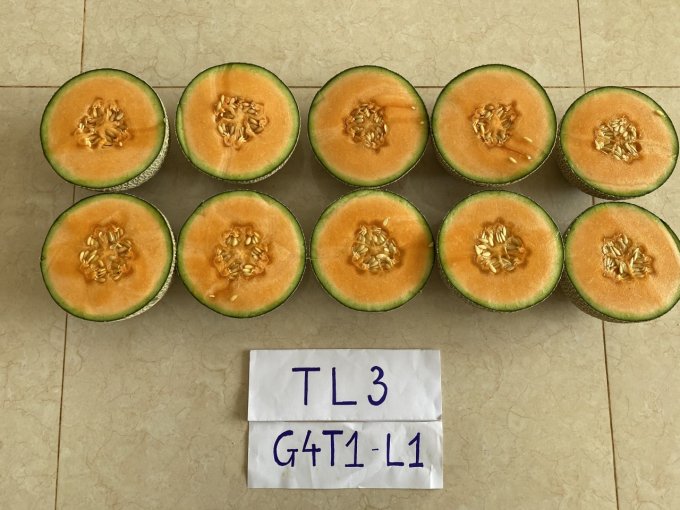November 25, 2025 | 10:17 GMT +7
November 25, 2025 | 10:17 GMT +7
Hotline: 0913.378.918
November 25, 2025 | 10:17 GMT +7
Hotline: 0913.378.918

Project manager, M.Sc. Tran Thi Hoang Nguyen in the experimental garden. Photo: Dang Lam.
The technical process of growing melons on the substrate, applying the drip irrigation system has been researched and completed by the Agricultural Science Institute for Southern Coastal Central in Binh Dinh and has been recognized at the basic level.
In early 2021, this process was transferred to the Center for Science and Technology Application (under the Science and Technology Department of Gia Lai province), with M.Sc. Tran Thi Hoang Nguyen as the project manager, and deployed at the Experimental Production Farm under Central.
According to Ms. Nguyen, the process of growing melons on substrate, applying drip irrigation system is very simple. Firstly, it is required to disinfect the greenhouse to prevent harmful diseases such as insects, fungi and bacteria… Next is to sow the seeds in the tray.
After 10-15 days (depending on the variety), the seedlings will be transplanted into a two-layer PE potting bag containing processed growing media (coconut fiber). After 15 days since the transplantation of the seedlings into the potting bag, more steps shall be proceeded in turn: wrapping the wires, pressing the axillary buds, pollinating with bees, positioning the fruit and leaving only one fruit per string, pruning branches and unnecessary leaves, pressing the tops…
Cantaloupe grown in greenhouses will be fed nutrients through a drip irrigation system 7-8 times per day, 4-5 minutes each time by an automatic irrigation system. All fertilizers used are soluble fertilizers, going along the automatic drip irrigation system...

Cantaloupe products after harvest in the experimental garden. Documentary: HN.
After the trial period, three out of five varieties are ready for harvest: Chu Phan, HL 05 and TL 3. As the person directly implementing the project, M.Sc. Tran Thi Hoang Nguyen said: Growing cantaloupe on substrate, applying drip irrigation system has many advantages compared to conventional planting.
First of all, the process is simple, easy to take care of. From planting into the potting bag to harvesting takes little time, only 60-75 days depending on the variety. Cantaloupe grown in a greenhouse is guaranteed to be a clean product by using fertilizers reasonably and using zero pesticides…
“Through implementing and monitoring the project, it was found that the cantaloupe varieties HL 05 and TL 3 are the two most superior among the five varieties under development, which will most likely be transferred to farmers in the province after finishing the project", shared Ms. Hoang Nguyen.

TL 3 cantaloupe variety is tasty and has high sweetness. Documentary: HN.
“This process is highly appreciated and will be replicated and transferred to farmers in Gia Lai province. The center will directly guide the people on technical and technological processes from the beginning to the collection and preservation time”, said M.Sc. Tran Thi Hoang Nguyen.
Also according to Ms. Hoang Nguyen, currently, the selling price at the Center is fairly high: For TL 3 varieties, the wholesale price at the Center is VND 18,000/kg, the retail price is VND 28,000/kg. As for the HL 05 variety, the price is even higher: the wholesale price is VND 28,000/kg, the retail price is VND 38,000/kg…

(VAN) The Ministry of Agriculture and Environment must spearhead the construction of green governance, spanning decision-making processes and investment standards to policy evaluation mechanisms.

(VAN) The Agriculture and Environment sector of Khanh Hoa has achieved numerous milestones over the past 80 years, contributing significantly to the goal of establishing the province as a centrally governed city by 2030.

(VAN) Viet Nam is entering the pivotal period of 2025-2030, moving toward the formulation of the Remote Sensing Law, which will establish a legal foundation for the development of national digital data.

(VAN) The agricultural sector is finalizing the strategic framework for emission reduction, setting the goal of sharply cutting methane and 403.7 million tons of CO2 equivalent and moving toward Net Zero by 2050.
/2025/11/22/2236-1-153832_483.jpg)
(VAN) The National Marine Spatial Planning is opening up opportunities for sustainable blue sea development across 21 coastal localities.

(VAN) Viet Nam’s forestry sector is undergoing a comprehensive transformation, strengthening management, protection, and development efforts to maintain ecological security and drive green, sustainable growth.

(VAN) Viet Nam is accelerating efforts to digitize reservoir operations, from real-time data to hydraulic modelling.